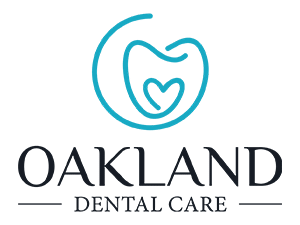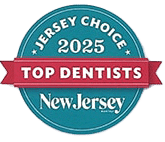Best Non-Surgical Treatments for TMJ Disorders in Oakland, NJ

Temporomandibular Joint (TMJ) disorders (TMJ-D) can significantly impact daily life, causing discomfort, jaw stiffness, headaches, earaches, and even difficulty chewing or speaking. Many people in Oakland, NJ, suffer from TMJ issues without knowing that relief is possible, often without surgery. At Oakland Dental Care, we’re passionate about helping our patients find long-term relief through non-invasive solutions tailored to their individual symptoms and lifestyles.
TMJ disorders vary widely in severity and cause. For some, it’s related to stress and grinding; for others, it stems from injury, arthritis, or misalignment. Regardless of the root issue, early intervention is key to avoiding chronic discomfort and more serious complications. Let’s explore the most effective non-surgical approaches to TMJ treatment and how we can support you on your journey toward lasting relief.
Occlusal Splints and Night Guards
One of the most common and effective non-surgical treatments for TMJ-D is the use of occlusal splints or night guards. These custom-made devices are worn over the teeth, usually during sleep, to reduce grinding, ease pressure on the jaw, and promote natural alignment.
Night guards are especially helpful for patients who clench or grind their teeth—a condition known as bruxism. Over time, this can wear down enamel, strain jaw muscles, and irritate the temporomandibular joint. By acting as a cushion between the upper and lower teeth, a night guard minimizes damage and gives the joint a chance to rest and heal.
At Oakland Dental Care, we take precise digital impressions to ensure a perfect fit and optimal comfort. These aren’t over-the-counter guards—they’re built specifically for your bite and designed to address the unique way your jaw functions during rest.
Physical Therapy and Jaw Exercises
Many TMJ disorders are rooted in muscular tension or misalignment. That’s where physical therapy can make a world of difference. Targeted jaw exercises strengthen and stretch the muscles that control movement, improving joint function and reducing pain.
Therapists trained in TMJ management may use manual techniques, moist heat therapy, ultrasound therapy, or guided stretches to help reduce inflammation and restore balance. For example, controlled jaw opening exercises, resistance training, or tongue positioning techniques can retrain your muscles to move in a more natural and pain-free way.
We often work collaboratively with physical therapists in the Oakland area to develop comprehensive plans for our patients. Consistency and gentle progress are key—TMJ-D improvement doesn’t happen overnight, but it is absolutely achievable.
Stress Management and Behavioral Therapy
We often think of TMJ-D as a physical issue, but in reality, emotional and psychological stress play a significant role. Clenching the jaw, grinding teeth, and holding tension in the facial muscles often happen unconsciously, especially during times of emotional distress or while sleeping.
That’s why stress management is an essential component of any comprehensive TMJ treatment plan. Cognitive-behavioral therapy (CBT) can help patients identify stress triggers and develop healthier coping strategies. Simple daily practices like mindfulness meditation, deep breathing, progressive muscle relaxation, and gentle yoga have also been shown to reduce muscle tension in the jaw and face.
We often recommend patients combine therapeutic work with lifestyle changes, such as limiting caffeine, reducing screen time before bed, and adopting better sleep hygiene practices—all of which can calm the nervous system and improve TMJ-D symptoms over time.
Lifestyle Modifications and At-Home Remedies
Small daily habits can either worsen TMJ-D or promote healing. That’s why lifestyle changes are one of the most underrated, yet highly effective, non-surgical treatments.
We often suggest to our patients:
- Switch to a soft food diet temporarily to reduce chewing strain
- Avoid extreme jaw movements like yawning widely or chewing gum.
- Be mindful of posture, especially when working at a computer.
- Practice jaw awareness—keep your lips together and teeth apart with the tongue resting gently at the roof of the mouth
- Apply warm compresses at the side of the face to relieve tension and increase circulation.
These conservative steps, when consistently applied, can significantly reduce inflammation and muscle strain. They also give the TMJ a chance to recover from long-term stress and microtrauma.
Seeking Professional TMJ-D Treatment
When self-care and temporary relief methods don’t resolve the pain, it’s time to consult with a dental professional experienced in diagnosing and managing TMJ disorders. At Oakland Dental Care, we offer a full spectrum of non-surgical TMJ treatment tailored to each patient’s needs.
We start with a thorough evaluation, examining your bite, muscle function, jaw movement, and overall dental health. From there, we build a personalized treatment plan that may include night guards, physical therapy referrals, stress-reduction coaching, and bite adjustments.
TMJ-D is a complex condition, but with the right tools and guidance, lasting relief is possible. You don’t need to live with chronic jaw pain or limited function. Our Oakland team is here to help you restore comfort and get back to enjoying daily life.
Frequently Asked Questions About TMJ-D
What causes TMJ disorders?
TMJ disorders can be caused by a combination of factors, including jaw injury, arthritis, teeth grinding, stress, or misalignment of the teeth and jaw. In many cases, the exact cause is multifactorial, which is why a personalized treatment approach is essential.
Are non-surgical treatments really effective for TMJ-D?
Yes—most patients experience significant relief through non-surgical interventions like night guards, physical therapy, behavior modification, and lifestyle changes. In fact, surgery is typically considered a last resort, used only when conservative options have not been successful.
At Oakland Dental Care, we provide comprehensive, compassionate care for patients struggling with TMJ disorders and other oral health issues. We’re proud to serve the Oakland, NJ, community with advanced diagnostic tools and a full range of non-surgical solutions. Contact us today to learn more or to schedule your TMJ consultation.


